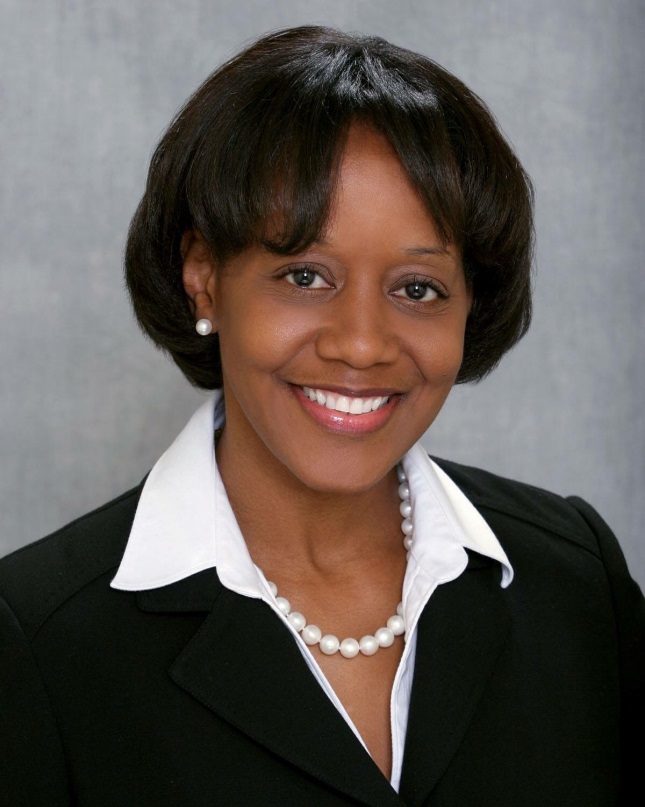In a business or organization, motivated employees are an asset.
Employees who develop rivalries and try to undermine each other -- not so much.
A 25-year veteran of the commercial real estate industry, Capitol doctoral student Roxanne Robinson has long been intrigued by the way company culture can impact the well-being of a business. Too often, she says, negative dynamics in the workplace produces a steep toll, whether in the form of high turnover, missed deliverables, or lost productivity.

"I've observed over the years that in almost every organization there is some degree of rivalry or competitiveness that is not positive, does not result in more productive personnel, and does not help the organization," says Robinson, who is earning her Ph.D. in Management and Decision Sciences at Capitol. "My research sets out to analyze how this kind of behavior influences companies and diverts them from their strategic objectives."
"Not only that, but I aim to put a dollar amount to it," Robinson adds.
Being able to quantify the impact is important, she says, because businesses often don't act unless they can see how the bottom line is affected. "These kind of negative organizational dynamics are widespread and fairly well-known, but not much has been done to mitigate them. By focusing on a specific industry -- commercial real estate -- and providing real numbers, I hope my research will help management understand the problem clearly and take steps to address it."
The Ph.D. program is not Robinson's first experience with Capitol; she also earned her M.B.A. and Certificate in Acquisition Management at the school. While many choices in online graduate education are available, she says Capitol's approach is the best fit.
"I like the way Capitol does online education. I'm able to have a closer relationship with my professors as well as my cohort. I like the size of the school -- you're not lost here and when you have questions they can be answered quickly, as opposed to going through the kind of bureaucratic process you often encounter at a larger-sized institution. Capitol pays attention to students," she says.
Capitol currently offers three online doctorate programs: a PhD in Business Analytics and Decision Sciences, a DSc degree in Cybersecurity and a Ph.D. in Technology. Online delivery makes doctoral studies more feasible for professionals like Robinson, who must balance their academic work against the demands of a busy career.
"I've always wanted to earn a Ph.D.," Robinson says. "Among other things, it's a way of diversifying my professional profile and be marketable across a number of areas. With this degree, I hope to move up into management. If not, I look forward to going into teaching or school administration because I will have the business credentials that allow me to do so."
"Job security in today's economy requires this kind of diversification," she says. "You need to be able to position yourself for a variety of possible opportunities. A doctoral degree will help me do just that."
Employees who develop rivalries and try to undermine each other -- not so much.
A 25-year veteran of the commercial real estate industry, Capitol doctoral student Roxanne Robinson has long been intrigued by the way company culture can impact the well-being of a business. Too often, she says, negative dynamics in the workplace produces a steep toll, whether in the form of high turnover, missed deliverables, or lost productivity.

"I've observed over the years that in almost every organization there is some degree of rivalry or competitiveness that is not positive, does not result in more productive personnel, and does not help the organization," says Robinson, who is earning her Ph.D. in Management and Decision Sciences at Capitol. "My research sets out to analyze how this kind of behavior influences companies and diverts them from their strategic objectives."
"Not only that, but I aim to put a dollar amount to it," Robinson adds.
Being able to quantify the impact is important, she says, because businesses often don't act unless they can see how the bottom line is affected. "These kind of negative organizational dynamics are widespread and fairly well-known, but not much has been done to mitigate them. By focusing on a specific industry -- commercial real estate -- and providing real numbers, I hope my research will help management understand the problem clearly and take steps to address it."
The Ph.D. program is not Robinson's first experience with Capitol; she also earned her M.B.A. and Certificate in Acquisition Management at the school. While many choices in online graduate education are available, she says Capitol's approach is the best fit.
"I like the way Capitol does online education. I'm able to have a closer relationship with my professors as well as my cohort. I like the size of the school -- you're not lost here and when you have questions they can be answered quickly, as opposed to going through the kind of bureaucratic process you often encounter at a larger-sized institution. Capitol pays attention to students," she says.
Capitol currently offers three online doctorate programs: a PhD in Business Analytics and Decision Sciences, a DSc degree in Cybersecurity and a Ph.D. in Technology. Online delivery makes doctoral studies more feasible for professionals like Robinson, who must balance their academic work against the demands of a busy career.
"I've always wanted to earn a Ph.D.," Robinson says. "Among other things, it's a way of diversifying my professional profile and be marketable across a number of areas. With this degree, I hope to move up into management. If not, I look forward to going into teaching or school administration because I will have the business credentials that allow me to do so."
"Job security in today's economy requires this kind of diversification," she says. "You need to be able to position yourself for a variety of possible opportunities. A doctoral degree will help me do just that."
No comments:
Post a Comment